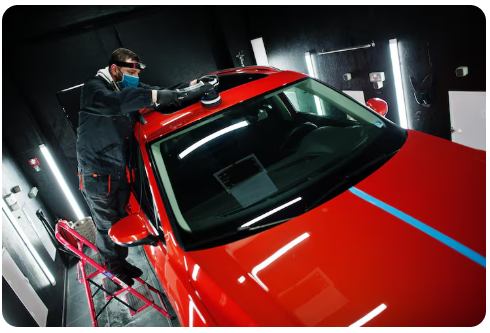Owning a vehicle is a major investment that demands consistent care to preserve its value, safety, and performance. Regular maintenance goes beyond preventing breakdowns; it significantly extends the lifespan of critical components and boosts fuel efficiency.
Neglecting basic checks often results in expensive repairs and safety risks. By sticking to a routine maintenance schedule, you ensure your vehicle runs reliably, saving you money and providing peace of mind.
Scheduled Fluid Checks and Replacements
Fluids are the lifeblood of your vehicle, and maintaining them is the simplest yet most crucial aspect of car care. Regularly check the levels of engine oil, coolant, brake fluid, transmission fluid, and power steering fluid.
Engine oil, in particular, must be changed according to the manufacturer’s recommendations, usually every few thousand miles, to prevent friction and overheating.
Coolant prevents the engine from seizing in hot conditions and freezing in cold conditions. Never neglect brake fluid, as its effectiveness is directly tied to your vehicle’s stopping power.
A proactive approach to fluid management safeguards the engine and transmission, which are the most expensive parts of your car to repair or replace.
The Importance of Tire Pressure and Rotation
Tires are your car’s only point of contact with the road, making their condition paramount to safety and handling. Checking tire pressure monthly is vital, as under-inflated tires decrease fuel economy and wear out faster. Over-inflated tires can reduce traction and cause uneven wear.
Furthermore, regular tire rotation—typically performed during an oil change—helps ensure that all four tires wear down evenly, extending their useful life and preventing premature replacement.
Always inspect the tread depth and look for any signs of damage, such as bulges or embedded objects, which could lead to a dangerous blowout.
Decoding the Dash: Warning Lights and Unusual Sounds
Your vehicle is equipped with a sophisticated system of sensors designed to alert you to potential problems. Never ignore an illuminated warning light on your dashboard, even if the car appears to be running normally.
The “Check Engine” light, for instance, can signify a minor issue like a loose gas cap or a serious problem with the emissions system. Similarly, pay close attention to unusual sounds.
Squealing brakes, grinding noises during turns, or a rumbling exhaust can be early indicators of a component failure. Addressing these warnings immediately can prevent a small issue from escalating into a catastrophic and expensive failure.
Engine Health and the Diesel Mechanic’s Role
For vehicles equipped with a diesel engine, specific maintenance tasks are necessary to ensure performance and efficiency. Unlike gasoline engines, diesel engines operate under extremely high compression, making the quality of the fuel and filters critical.
Regular inspection of the glow plugs, fuel injectors, and turbocharger is essential. Consulting a qualified diesel mechanic should be a routine part of your maintenance schedule.
They possess the specialised knowledge and tools required to perform fuel system cleanings and diagnose complex issues unique to this engine type, ensuring your vehicle’s longevity.
Protecting Your Finish: Car Paint Correction and Protection
The exterior finish of your car is the first thing people notice, and maintaining its clarity and shine is crucial for preserving the vehicle’s resale value. Over time, swirl marks, oxidation, and deep scratches can damage the clear coat.
Expert treatment involving car paint correction can remove these imperfections, restoring the factory shine. This process involves carefully polishing the clear coat to create a flawless, mirror-like finish.
Once corrected, protect the paint with high-quality wax, sealants, or ceramic coatings to shield it from environmental hazards like UV rays, bird droppings, and industrial fallout.

